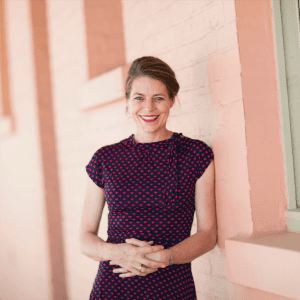Amanda Third’s work offers a genuine attempt to introduce non-normative perspectives and to open up possibilities for thinking about children’s agency and rights. During the interview, she describes her perspective as eclectic, powered by a concern with how marginalised groups are constructed in dominant media discourses, as well as how their practices present a critique of that construction.
For inspiration, Amand Third draws on the Birmingham School of Cultural Studies with its interest in reading practices in their historical, social, cultural and political contexts, as well as the work of feminist theorists, notably Judith Butler, who focus on the power dynamics of subjectivity formation and the role of performativity. Amanda explains that it is important to think about “the ways we interpolate children and demand particular performances from them”, as well how “children develop a sense of agency and push back against adult ways of thinking, and enact their own forms of resistance.”
During the conversation we discuss different theoretical approaches which inform her thinking, since “digital media is such a rich subject area that no one particular lens really gives you all the tools that you might need to make sense of it.” Amanda describes the challenges of research and theorising as “a constant interplay between theory and other sources or inspiration, or grounding.” On the one hand, we need to understand how to “activate” particular theories in specific so they address real world challenges; on the other to find ways for the evidence. This is not always an easy process:
Theorising needs to be brave, bold, experimental; it needs to grapple with difficult subjects and a whole range of political sensitivities and injustices.
Of course, we talk a lot about children, participation, agency and rights; about the need to constantly push the boundaries of theorising and strive for a better understanding of how to harness the full potential of digital media. Amanda argues for a shift away from top-down adult-centric theories of childhood and technology which are primarily driven by adult fears and concerns. It is important to introduce alternative ways of thinking, she suggests, for example, by trying to channel what children have to say about their digital practices.
We discuss the transformative potential of participatory research which allows children to build their own theories. The conversation ends on a positive note as Amanda suggests that we are yet to imagine the full range of possibilities of digital media for enhancing children’s lives, and yet to identify the opportunities technology brings. To achieve this, we must give children the space to explore and experiment with technology.
Theory is really critical for the field of children and digital media but there are often orthodoxies at play that constrain how we think… I would love to see us be much more creative and inventive…, theorising from a genuinely child-centered place about what the future holds.
Watch the full vlog with Amanda Third

Video: CO:RE theories vlog series - an interview with Amanda Third.
If you are experiencing issues with the video player, please watch the video here on our YouTube channel.
Or listen to the interview as a podcast

Podcast: series "theory calling" with Amanda Third.

Professor Amanda Third is Professorial Research Fellow in Digital Social and Cultural Research in the Institute for Culture and Society and Co-Director of the Young and Resilient Research Centre at Western Sydney University; and Research Stream Co-Lead in the Centre for Resilient and Inclusive Societies (Deakin, Western Sydney University and Victoria University).
An international expert in user-centred, participatory research, her work investigates children’s and young people’s technology practices, focusing on marginalised groups and rights-based approaches. She has led child-centred projects to understand children’s and young people’s experiences of the digital age in 68 countries, working with partners across corporate, government and not-for-profit sectors. She is committed to working with communities to generate research that can be activated for effective policy and practice.
Further reading
Third, A., Collin, P., Walsh, L. & Black, R. (2019). Young People in Digital Society: Control Shift. Palgrave Macmillan.
Third, A. & Moody, L. (2021). Our rights in the digital world: A report on the children’s consultations to inform UNCRC General Comment 25. 5Rights Foundation and Western Sydney University.
Third, A. (2016). The tactical researcher: cultural studies research as pedagogy. In A. Hickey (Ed.), The Pedagogies of Cultural Studies. Routledge
Third, A., & Collin, P. (2016). Rethinking (children’s and young people’s) citizenship through dialogues on digital practice. In A. McCosker, S. Vivienne, & A. Johns (Eds.), Negotiating Digital Citizenship: Control, Contest and Culture (pp. 41-59).
Swist, T., Collin, P. & Third, A. (2019). Children’s data journeys beyond the ‘supply chain’ : co-curating flows and frictions, Media International Australia, 170(1), 68 – 77.
Deitz, M., Notley, T., Cantanzaro, M., Third, A. & Sandbach, K. (2018). Emotion mapping: using participatory media to support young people’s participation in urban design, Emotion, Space and Society, 28, 9 – 17.
Livingstone, S. &Third, A. (2017). Children and young people’s rights in the digital age: an emerging agenda, New Media and Society, 19(5), 657 – 670.


































-_-spider-diagram.png)






















